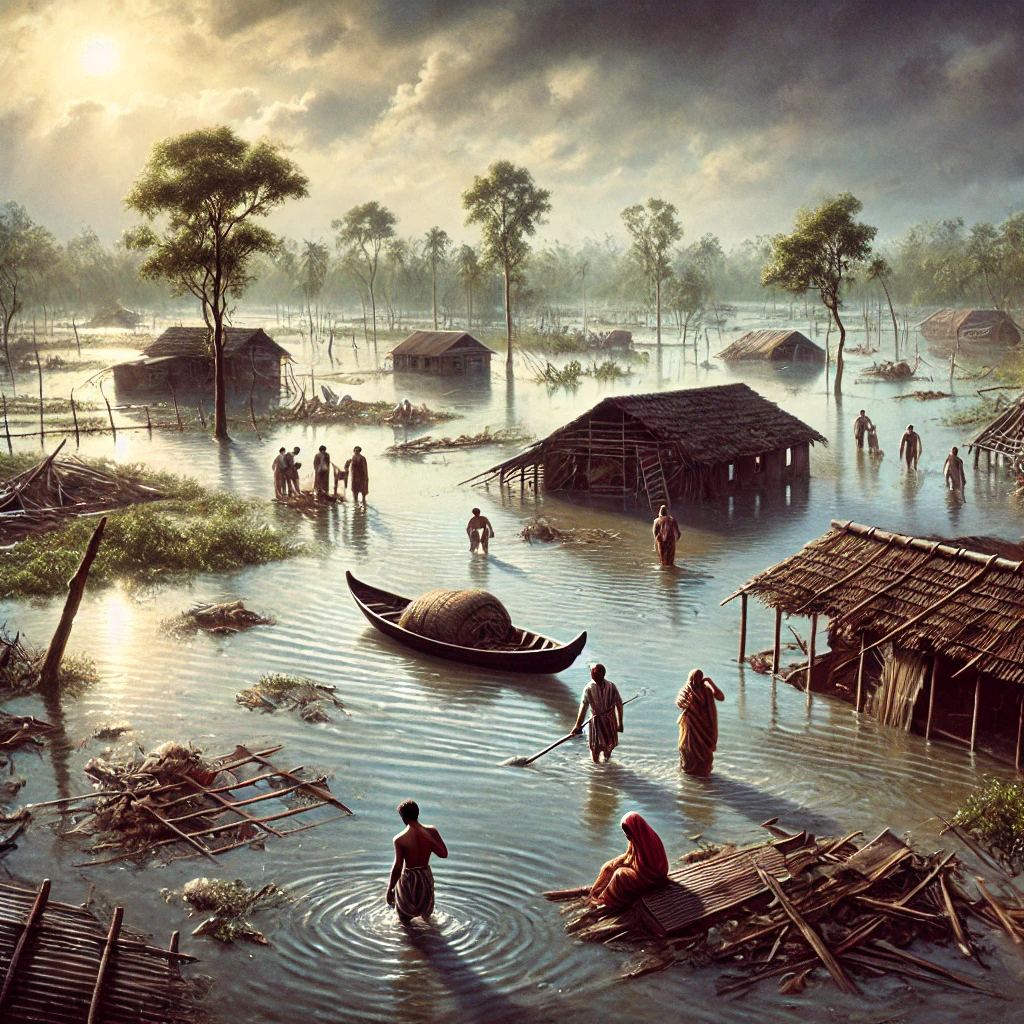Cyclone Bhola struck the coast of East Pakistan (now Bangladesh) and the West Bengal region of India on November 13, 1970. This storm remains one of the deadliest cyclones in recorded history, claiming up to 500,000 lives. Beyond the immediate devastation, Cyclone Bhola had profound political and social repercussions, playing a pivotal role in the eventual independence of Bangladesh.
The Storm and Immediate Impact
Cyclone Bhola made landfall with sustained winds of 115 mph, unleashing powerful storm surges that inundated coastal areas. The low-lying geography of the Ganges Delta made the region especially vulnerable to flooding. Thousands of villages were submerged, and countless lives were lost. Survivors were left without shelter, food, or access to clean water, creating a humanitarian crisis of unprecedented scale.
Political Fallout and Government Response
The lack of a timely response from the central government of Pakistan, headquartered in West Pakistan, led to widespread discontent among the people of East Pakistan. Many felt that the government’s inadequate relief efforts reflected deep-seated inequalities and neglect. This resentment fueled political tensions, and public protests erupted across East Pakistan, demanding better governance and autonomy.
The Rise of Bangladesh’s Independence Movement
The fallout from Cyclone Bhola catalyzed the independence movement in East Pakistan. The political party Awami League, led by Sheikh Mujibur Rahman, gained massive support as it championed the cause of East Pakistani autonomy. In the general election held shortly after the cyclone, the Awami League won a landslide victory in East Pakistan, setting the stage for the Bangladesh Liberation War and the eventual independence of Bangladesh in 1971.
Long-Term Humanitarian Consequences
In addition to the immediate loss of life, Cyclone Bhola caused widespread displacement and long-term socioeconomic damage. Agricultural lands were destroyed, affecting food production and livelihoods in the region for years. International aid organizations and neighboring countries provided critical support, but the long recovery underscored the need for better disaster preparedness in the delta region.
Legacy and Lessons Learned
Cyclone Bhola left a lasting impact on both natural disaster management and South Asian politics. The tragedy highlighted the importance of timely disaster response and led to improvements in cyclone warning systems in Bangladesh. Politically, the storm was a catalyst that exposed the inequities between East and West Pakistan, ultimately contributing to the birth of Bangladesh.
Conclusion
The 1970 Cyclone Bhola serves as a stark reminder of the human and political consequences of natural disasters. It reshaped the political landscape of South Asia and led to improvements in disaster preparedness that continue to protect lives today. The legacy of Cyclone Bhola underscores the enduring link between environmental catastrophes and societal change.

